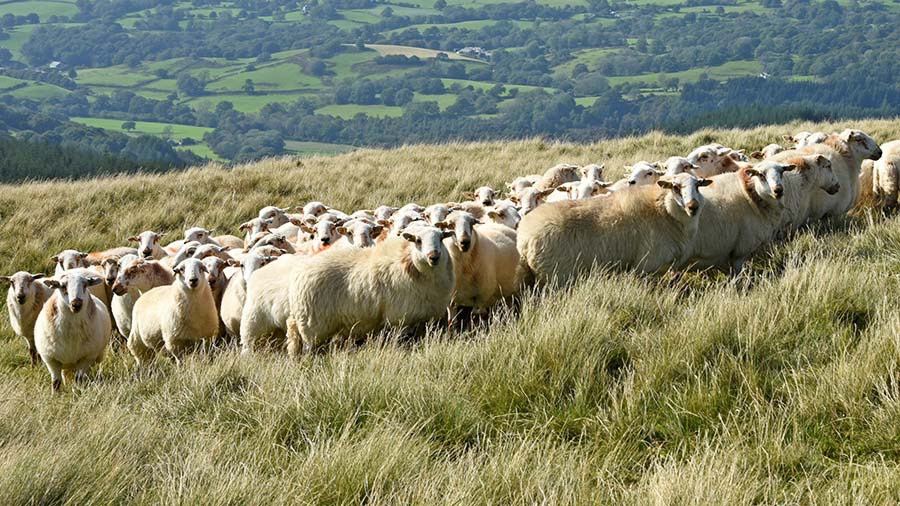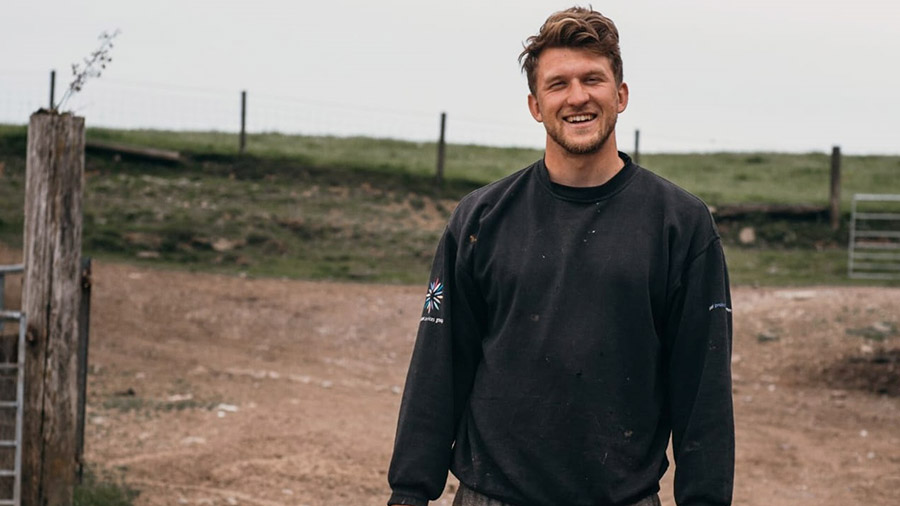Welsh sheep breeders take part in pioneering green project
 © Hybu Cig Cymru
© Hybu Cig Cymru More than 20 hill sheep breeders across Wales will take part in a pioneering green project to see how their flocks are enhancing biodiversity and reducing carbon emissions.
The environmental auditing programme will evaluate where Welsh upland farming stands in terms of its environmental credentials, and establish what scope there is for further improvement.
Launching the programme at the Royal Welsh Show on Tuesday (19 July), Meat Promotion Wales (Hybu Cig Cymru, HCC) chairwoman Catherine Smith said the project would help demonstrate the sustainability of Welsh hill farming – and market protected geographical indication (PGI) Welsh beef and lamb home and abroad.
See also: How Welsh sheep producers are improving hill genetics
Farmers taking part in HCC’s Hill Ram Scheme were all offered the opportunity to take part.
How the audit will work
Using the Chartered Institute of Ecology and Environmental Management Good Practice guides, specialists will carry out in-depth environmental audits on each farm, looking specifically at greenhouse gas emissions.
The first phase of the environmental project on the 22 farms will concentrate on biodiversity, where a habitat survey will be carried out at each farm to identify what habits are on the farm and what benefit they bring to the farming system.
Carbon footprinting will also be carried out using the Agrecalc farm carbon calculator.
Heather McCalman, project delivery co-ordinator at HCC, said: “Results will be fed back to individual farms to help them improve what they are doing and will be collated to add value to the sector.
“We anticipate the overall results will highlight the positive impact of grazed sheep [and cattle] in the hills and uplands of Wales for the benefit of not only the environment but food production within Wales.”
Work recognised
Ben Williams, 29, who farms 600 Welsh Mountain breeds in partnership with his family at Garth Uchaf Farm, near Cardiff, said: “As Welsh farmers, we have done a lot of environmental work over the years. We’ve laid new hedgerows, planted 6,000 native trees, and created small ponds.
“This will be our opportunity to see the fruits of our labour recognised and evidenced on paper.”
Initial results should be available early next year.

Sheep farmer Ben Williams, who is taking part in the Hill Ram Scheme © Hybu Cig Cymru
Hill Ram Scheme
Since 2018, Hill Ram Scheme farmers have been using DNA-based technologies to record the performance of hill flocks, enabling farmers to use genetic data to breed selectively to improve flock performance.
To date, 54 flocks and seven different breeds have been recorded.
